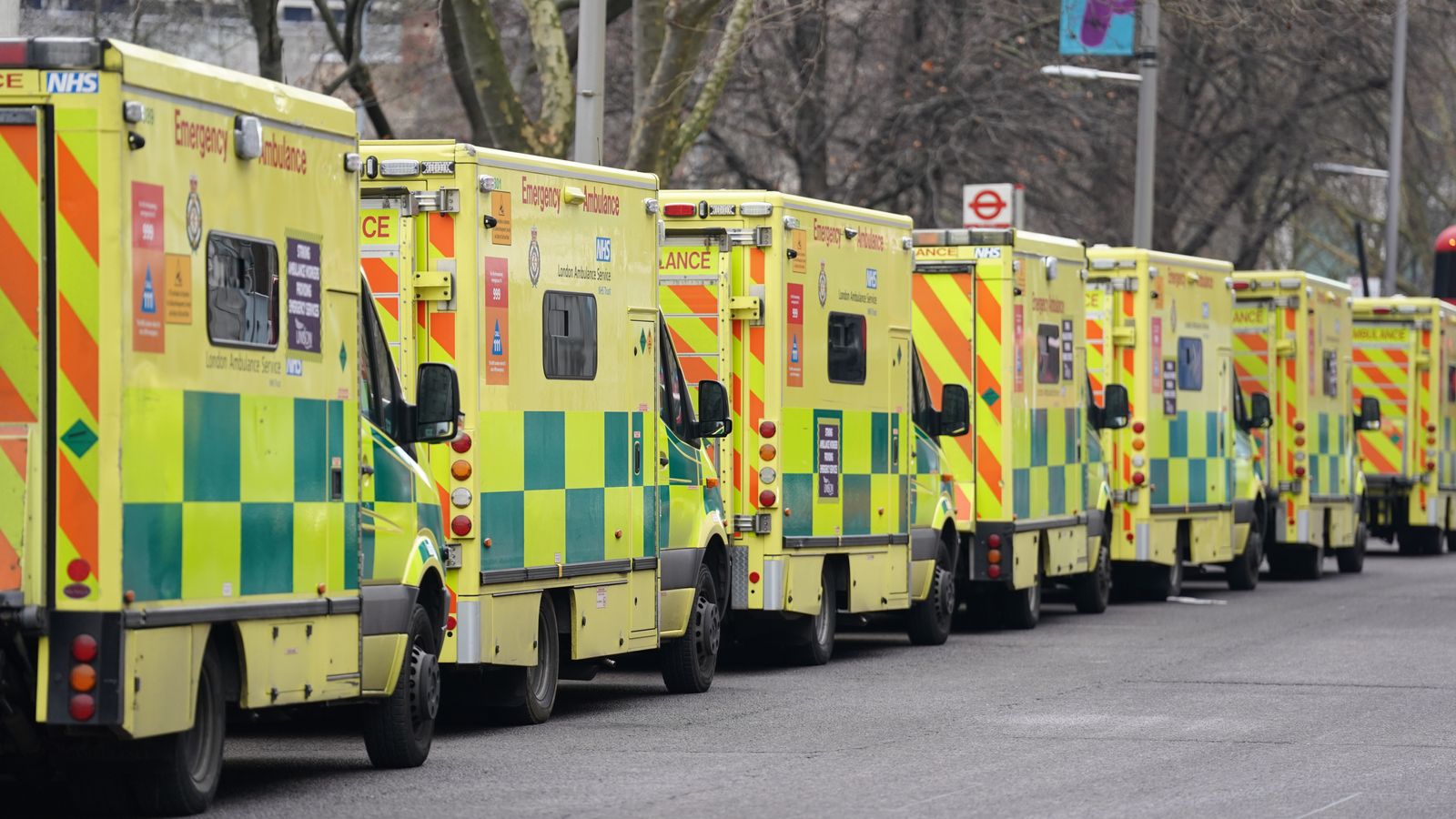An estimated 7.22 million people were waiting to start routine hospital treatment at the end of February, the highest total since records began in 2007, according to figures from NHS England.
This represents a rise from 7.21 million in January.
Ambulance response times for all types of emergencies have also got longer, including for life-threatening illnesses and injuries.
And around one in 10 people arriving at A&E are waiting more than 12 hours before being admitted, transferred or discharged.
However, progress is being made on clearing the backlog of the longest waits.
The number of people waiting more than 18 months for treatment has dropped from 45,631 to 29,778, a month-on-month fall of 35%.
The government has set NHS England the ambitious target of eliminating all waits of more than 18 months by April 2023, excluding exceptionally complex cases or where patients have chosen to put their operations off.
Waits of more than a year are also down, from 379,245 in January to 362,498 in February, a fall of around 4%.
The government wants to eradicate this by March 2025.
Read more:
Health inequality grows as waiting lists near likely peak
Waiting lists are a ‘national scandal’, BMA chairman says
NHS crisis: How the health service in your area is performing
More than 125,000 people had to wait more than 12 hours before being admitted, discharged or transferred, the data showed. This is the first time this metric has been measured.
This was a commitment agreed by NHS England with the government as part of the recovery plan for urgent and emergency care services.
Until now, figures only showed the number of people waiting more than 12 hours in A&E from a decision to admit to actually being admitted, which stood at 39,671 in March, up 13% from 34,976 in February.
This is considerably lower than the record of 54,532 which was set in December 2022.
The number of people waiting at least four hours from the decision to admit to admission has also risen, from 126,948 in February to 144,292 in March, up 14%.





